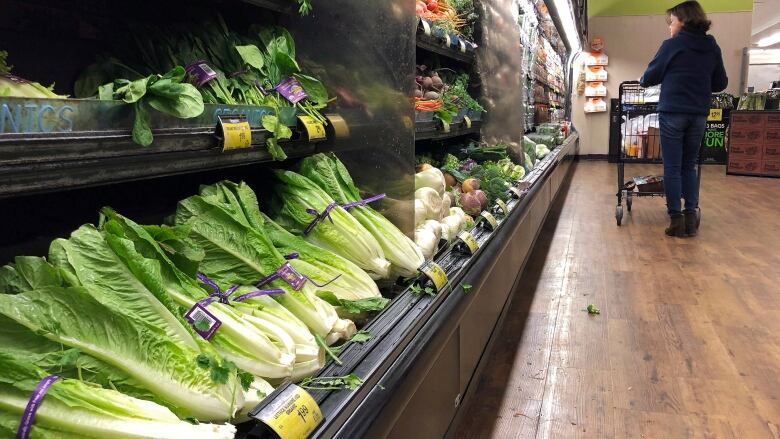Testing kit offers promise in identifying E. coli-contaminated lettuce before it hits store shelves
Researchers at Western University say their kit allows for quick testing of lettuce samples

A new rapid testing kit developed at Western University in London, Ont. could detectE. coli in romaine lettuce long before shipments hit grocery shelves, according to researchers.
Researchers said the Western-developed kit detects aprotein unique to the E. coli0157 bacteria and can show results in under 24 hours. That's the same strain of bacteria causing the current outbreak in the United States and Canada.
Current testing reliesoncultures being taken from possibly contaminated samples and being sent away for testing, with results taking up to two weeks to come back.
By that time, the food has often been shipped to market.
'Faster and cheaper'
"Our goal is to get the testing to occur as close as possible to the source," said Dr. Michael Rieder, professor at Western's Schulich School of Medicine & Dentistry and scientist at Robarts Research Institute.
"This technology is not only faster, but it's less expensive, it's easy to use, and it can occur right in the processing plant."
The Western University kit has been approved by Health Canada and is now being shipped to food processing plants in North America.
"We are looking at this specific bio-marker because it is unique to this pathogenic bacteria. The presence of bacteria itself isn't bad, but we want to be able to identify specific bacteria that will cause people to get sick," Rieder said.
"The goal is a safer food chain for everyone so that public safety can be assured."
Much of the work to develop the kit was funded through a grant from Mitacs, a federalnon-profit agency that encourages academic and industrial collaboration.












_(720p).jpg)


 OFFICIAL HD MUSIC VIDEO.jpg)
.jpg)



























































































